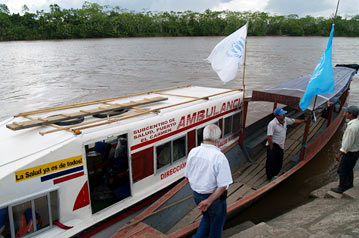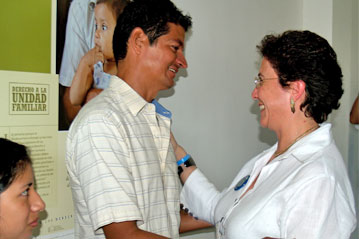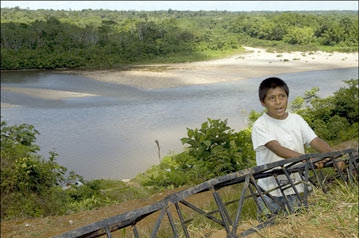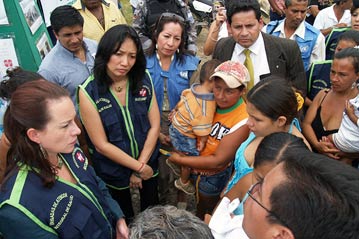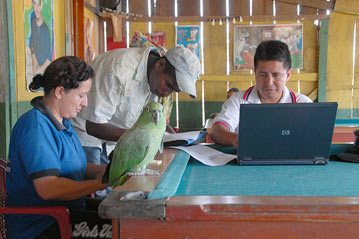UNHCR, Ecuador and partners discuss plan for action for refugees
UNHCR, Ecuador and partners discuss plan for action for refugees
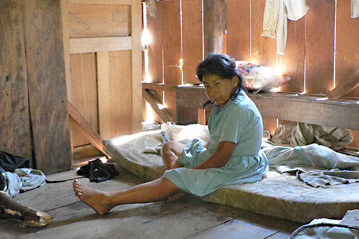
QUITO, Ecuador, July 10 (UNHCR) - The UN refugee agency and the Ecuadorean Foreign Ministry have held wide-ranging consultations with refugees and partners aimed at drawing up a comprehensive plan of action for tens of thousands of refugees in Ecuador over the next two years.
Representatives from UNHCR, the Ecuadorean government, non-governmental organizations and the international community attended the "national consultations" in Quito on June 3-4. They were joined by refugees and members of local communities from all over the country in the two days of discussion to define what works well and what could be done better to help them.
Over the next few weeks, UNHCR will put together the recommendations that came out of the various working groups and use them to as a basis for a two-year common plan of action. The participants looked at issues ranging from asylum laws and building state capacity to refugee integration in cities and along the Ecuador-Colombia border.
The meeting in Ecuador was part of the UNHCR-sponsored Strengthening Protection Capacity Project, which seeks to develop tools to strengthen the capacities of states to receive and protect refugees. Ecuador, which has the largest refugee population in Latin America, mostly from Colombia, is the first country in the region to take part in this process.
Ecuador's Foreign Minister Maria Isabel Salvador welcomed the participation of local communities. "Citizens' participation is crucial because it is an essential part of the success of any state's policies and that is why these national consultations are so important to us," she told participants.
She added that Ecuador was committed to keep fulfilling its international obligations to refugees, "not because they are obligations but out of conviction."
An estimated 150,000 Colombians live in Ecuador in a refugee-like situation. Around 18,000 of them have received refugee status. The rest are waiting for their asylum requests to be processed or - in the large majority of cases - have never been registered, making it very difficult to assist them.
This lack of documentation was one of the challenges identified during the consultations and Foreign Minister Salvador announced that Ecuador plans to start later this year a large-scale registration exercise for people who are already in the country and are in need of international protection. This will help them access basic rights and services and also help to better plan assistance programmes for refugees and host communities.
All over Ecuador, refugees live side-by-side with the Ecuadorean people as there are no camps in the country. About half of the refugees live in and around the larger towns and cities, the other half in rural areas - some in very remote and under-developed areas like Ecuador's Amazonian jungle.
Access to health, education, security and proper documentation were seen as key areas that needed to be addressed ion assistance programmes for both refugees and local communities
Mérida Morales-O'Donnell, director of UNHCR's Americas bureau, thanked Ecuador for its approach towards refugees and said the consultations had been very important. But she added that "the work does not end here and I want to assure you of UNHCR's continuous support over the next stages."
By Marie-Hélène Verney in Quito, Ecuador

